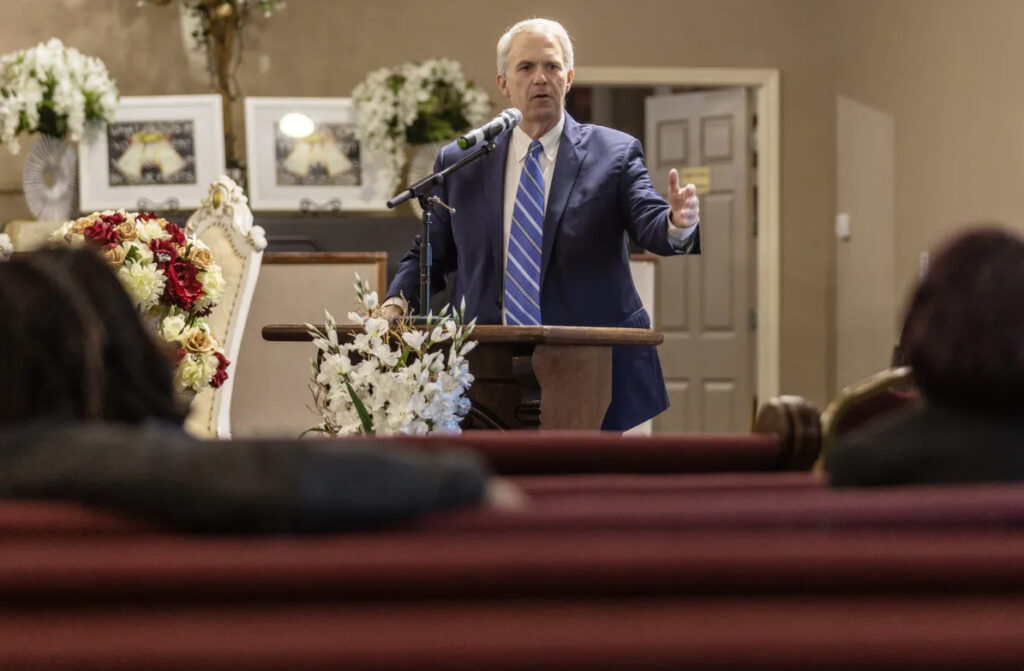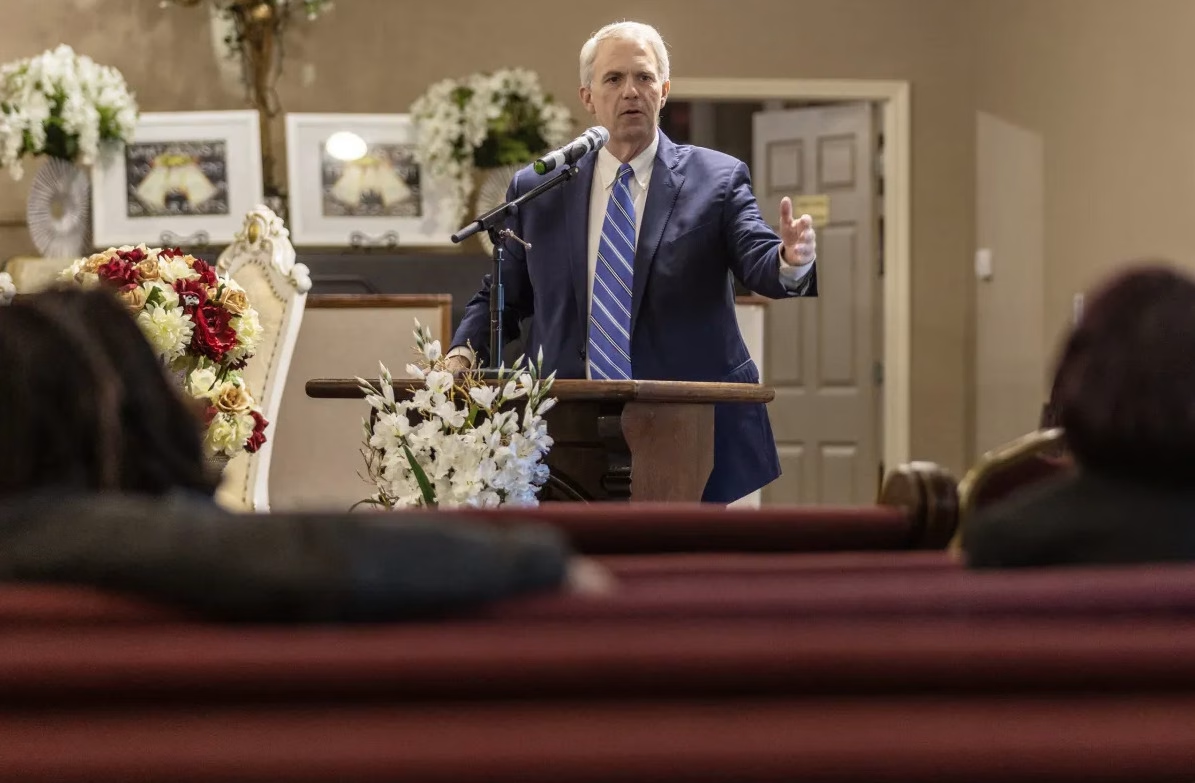By Bobby Harrison
Mississippi Today

The similarities were striking as Democratic gubernatorial candidate Brandon Presley held a news conference at the state Capitol last week to unveil his ethics reform package just as Jim Hood did in 2019.
Both also blistered their Republican opponent, Gov. Tate Reeves.
“It’s time for us to throw the money changer out of the temple — I’m talking about Tate Reeves,” then-Democratic gubernatorial candidate Hood said in October 2019 during his state Capitol news conference on ethics reform.“… He’s been transactional. Every bill he’s passed, it’s been to get campaign contributions back.”
Just a few days ago, Presley stood on the steps of the same Capitol building and said, “Tate Reeves will not tackle corruption. Let me say that again, he will not tackle corruption. He doesn’t have the guts to do it. It will make too many of his buddies mad and it will upset the system that he has benefited from for the entire time he’s been in state service.”
While there were differences in their proposals, both in general touted more governmental transparency, openness and guardrails to curb the influence of big-monied special interest groups on state government. Both proposed to prohibit campaign contributions while legislators are in session writing the laws that impact lobbyists and their clients. Both also proposed banning corporate campaign contributions. There were other similarities.
Presley, the four-term Northern District Public Service commissioner and the Democrats’ latest hope to capture the Governor’s Mansion for the first time since 1999, has gone out of his way to try to tell voters that he is not Hood and that his campaign is not destined to come up short in November like Hood’s did in 2019.
But Presley had better hope that Hood was right about at least one thing – the issues.
When it comes to the issues, in many respects, they are running the same campaign.
Both said they would move quickly if elected to bring more transparency to state government and to rein in the influence of special interests.
Both are campaigning on expanding Medicaid to provide health care coverage to primarily working Mississippians. Both also advocate for cutting or eliminating the state’s 7% tax on groceries, which is the highest state-imposed tax of its kind in the nation’s poorest state.
Reeves opposes Medicaid expansion, supports eliminating the income tax instead of the grocery tax and has never voiced governmental transparency as one of his priorities. That is true now as it was in 2019 when he defeated Hood by about 5% or about 45,000 votes.
Why will 2023 be any different? Maybe it will not.
But each election is different. Circumstances and events change that could impact the outcome.
On the positive side for Reeves, he is facing a candidate in Presley who has never run for statewide office. On the other hand, Hood was well-known across Mississippi having been elected four times to the statewide office of attorney general.
But in Presley, Reeves is facing an opponent who it could be argued has abilities as a retail politician and has communication skills that are unmatched among most Mississippi politicians.
And perhaps most importantly, Mississippi is in the midst of the largest public corruption scandal in state history. The disturbing saga of $77 million in misspent welfare funds intended for the state’s poorest citizens but instead diverted to investments in speculative drug companies, volleyball courts, fitness trainings and other activities was not public in 2019 when Hood talked about ethics.
When Hood offered his proposals, close political allies of Reeves such as Nancy New and her son Zach, who had contracts to expend the funds supposedly to help poor people, had not yet pleaded guilty to charges related to the misspending of the funds.
It was not known that Paul Lacoste, identified as Reeves’ personal trainer, had received $1.3 million in welfare funds. Text messages obtained by Mississippi Today show that John Davis, the former head of the state agency that administered the funds, told his subordinates that Reeves played at least some role in Lacoste receiving the funds.
Reeves vehemently denies any involvement in the misspending of the funds.
But what is harder to deny is that as lieutenant governor, Reeves presided over the Senate that had an obligation to provide oversight over the expenditure of the welfare funds.
Then later as governor, he had the opportunity to offer legislation to put in place safeguards to prevent such misspending of public funds from happening again.
Reeves did not offer any such legislation, and none has been passed on his watch.
Those are some underlying factors that differentiate Brandon Presley’s Capitol press conference on ethics reform from Jim Hood’s. Time will tell whether the 2023 circumstances create a different election outcome than in 2019.
This article first appeared on Mississippi Today and is republished here under a Creative Commons license.

